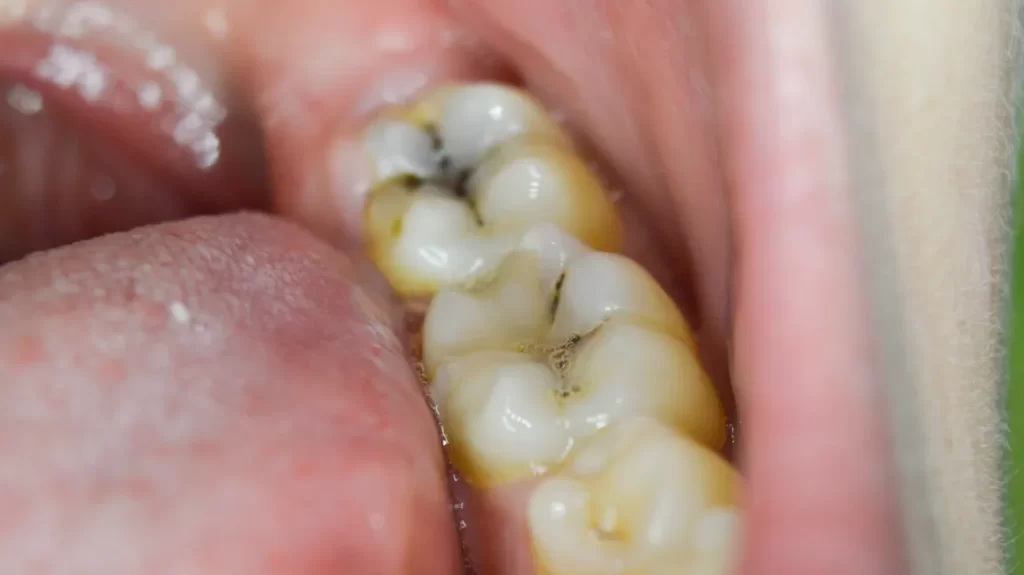
Is It Possible for Small Cavities to Heal on Their Own?
You might be thinking that a cavity will simply go away on its own if you have one and are hesitant to call the dentist. Tooth decay that results in a hole in the tooth is called a cavity. If dental cavities are not taken seriously, more severe problems may arise. At Leduc general dentist, managing your dental health and forming good habits at home are important. You may find out if you have cavities and ensure that they get fixed immediately by stopping in for your usual cleanings and exams in our office.
What Treatment Can You Expect for Your Small Cavity?
It is likely that you will require a filling if your cavity is large. Your dentist might be able to observe the cavity by examining X-rays to determine if it is active or arrested if it is minimal, and if it does not give you any discomfort or suffering. Good oral hygiene helps avoid small cavities that get noticed early. Brushing, flossing, and applying fluoride to your teeth can help construct the enamel and prevent cavities before they begin.
Can Cavities Repair Themselves?
Cavities cannot repair themselves, unlike what many people think. Your body’s natural healing processes cannot reverse the structural damage that tooth decay has caused to your enamel. The protective layer known as enamel is rigid and non-regenerating.
Although the body is unable to fix cavities on its own, good oral hygiene habits can prevent or even reverse early-stage dental decay.
Treatments for Cavities
- Fillings
- Crowns
- Root Canal Extractions
- Inlays or Onlays
How Can You Stop Cavities and Reverse Decay?
- Use fluoride toothpaste and floss and brush at least twice a day.
- To help prevent more decay of the cavity, increase your intake of fluoride. Fluoride is present in toothpaste and mouthwashes.
- Sealants can be used to stop cavities from developing in molars. If a cavity is sufficiently small and in its early stages, this clear plastic protective coating can help stop or reverse current decay on a tooth.
- Limit your consumption of food and drinks that are high in sugar. Tooth decay gets worse with these types of foods and beverages.
Brush as soon as possible after consuming these items. For your routine cleaning and examination, visit your dental office twice a year.
SOLEA Laser
The SOLEA laser is a recently developed device for treating cavities. This laser is very good at eliminating tooth structure with a minimum of damage to the surrounding tissue because it uses a wavelength of light that gets absorbed by water.
The traditional drill and fill method is often substituted with this technology. The following are a few benefits of treating cavities with a SOLEA laser:
-
Reduced pain and discomfort
The laser may cut through tooth structure without producing the heat and vibration that traditional drills do, which can be difficult for patients.
-
Reduced anxiety
The laser’s absence of noise and vibration may help some individuals who may get scared or anxious when they visit the dentist.
-
Faster healing
By sealing the cavity’s edges as it cuts, the laser may reduce the risk of infection and accelerate the healing process. Preserving as much of the tooth’s healthy structure as possible is possible because the laser can only remove the damaged part of the tooth.
The SOLEA laser has the ability to carry out dental fillings without requiring drilling or anesthesia, in addition to treating cavities.
In a single step, the laser can eliminate the decay and get the tooth ready for the filling, which often speeds up and enhances patient comfort.
Treat your cavities.
Even while cavities cannot be cured on their own, periodic dental exams and proper oral hygiene can prevent them from getting worse. Taking proper care of your teeth is important for preserving your overall well-being.
